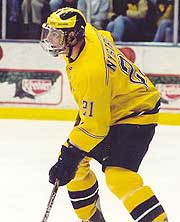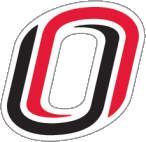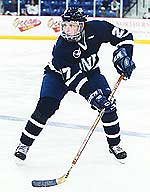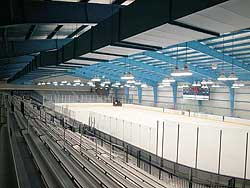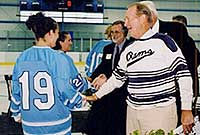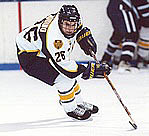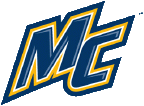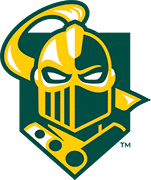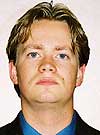Red Berenson is the nation’s most outspoken coach when it comes to players leaving school early, and for no small reason, since it’s many of his Michigan Wolverines that are doing the leaving.
No doubt about it, Red is one of the elder statesmen and great ambassadors of college hockey, and he really believes in the college experience. He says what a lot of people think but don’t say, and we can all appreciate that.
The most recent chance for Red to espouse his views came last month with the departure of Mike Cammalleri and Mike Komisarek to the NHL. Berenson questioned the loyalty of players who leave early, criticized the agents that lead them down the wrong path, and lamented players who would give up a chance at continuing development, earning a degree, and enjoying the college years.
In the end, this is just something we have to learn to deal with and
accept — as many programs already have done. These great players choose to play college hockey because the level of play is so good, because it’s a proven way to get to the NHL, and because you can get a good education while following your dream. But it’s also a business …
All of us prefer to see players stay four years, whether it’s because we genuinely think they’d be better off, or just for the selfish satisfaction of getting to see them play for our team. But I also have felt for a long time that I could not blame them for taking the money, ever since I watched one who turned down the money 17 years ago only to suffer a possible career-ending injury the next year.
Ultimately, Berenson’s comments leave me feeling ambivalent, with more questions raised than answers.
What specific areas of development does Red feel a player like Cammalleri will get by staying that he will not get by turning pro? If you are still going to have to develop after college whether you graduated or not — and virtually every player does — why not get paid to do it, especially if you feel the money is right or the best you can get? Does he believe every player should stay in school? Undoubtedly many should (and do), but aren’t there some for whom leaving early is the right decision?
Some may dismiss what Red says, believing he’s just trying to keep his players longer so his team will be better. I think he honestly believes kids should finish their education too, but just as he said that the pros will always be there, so will school, right? What about a kid who feels he has developed all he can in college and decides he should make the move to the next level right now for the good of his hockey career, and is willing to do the work in the offseason to finish his degree? Many players do just that.
It’s most interesting that Red says these players are not consulting with him. You’d think they would. Look at his experience in college and the NHL (as both a player and head coach). I can’t imagine a kid making one of the most important decisions of his life but not consulting with the man who has been his coach and mentor for two or three years. Why? Are they embarrassed to go to him? Has he developed a reputation as a coach who will tell you to stay no matter what, and so they don’t feel consulting with him will help — they already know what he will say?
If that’s true, that’s a big issue. Boston University coach Jack Parker, for instance, seems to have a lot of contact with his players over issues like this. Some he has encouraged to stay, others he felt were at the point where they should go.
Of course, Parker was apparently caught by surprise two years ago when freshman goaltender Ricky DiPietro suddenly declared for the draft and simply left a message on the coach’s answering machine to let him know. So Red isn’t alone. But in general, are some kids more likely to talk to their coaches about this than a Michigan kid is to talk to Red? Has Red’s attitude, which is well known, resulted in him losing more kids than he might otherwise? If kids are not talking to him, he doesn’t get to give them some piece of advice that might change their minds.
When Berenson says that more players are leaving early now than ever before, it needs to be pointed out that, in reality, it’s just that more Michigan players are leaving now than before. That brilliant nine-player Michigan class of ’97, that won a championship together in 1996 as juniors then remained intact, was an anomaly. Most other programs have seen players leave early for years. When you think about all the kids who left early in the late ’80s and early ’90s, an annual exodus often in the dozens, there really are not more players leaving early today, overall.
I sense Red felt he had something special in the late ’90s with the class that stayed (Morrison, Botterill, Turco, etc…) and perhaps believed he had an ability to keep kids where other schools and coaches did not — and now that it is happening to him too, it’s a real blow.
Red did not come down as hard on Komisarek, and mentioned personal reasons. I’ve known kids who left early to take the money because they had a baby on the way, or because their families were poor and they wanted to help them. But even if a kid just believes, “I want to take the safe bet and take the money I know is there,” I cannot blame him. It’s a gamble either way, but it’s his gamble. And every player’s situation is unique to him.
On the other hand, I also know many kids who said later they wished they had stayed. There aren’t many who decided not to leave and later wished they had.
Sometimes, former players will talk to a kid and advise him to stay in school. Did Red try that? Maybe not; he was unable to given that he said he didn’t know what was going on. But is that how schools can sell kids on the idea of staying, have them talk to former players they respect — if nothing else to let them have the other side of the story? The rumors were out there for a while about Cammalleri and Komisarek, I doubt Red was totally in the dark. Could he have gotten hold of Andy Hilbert and asked him to give Cammalleri a call? What might Hilbert have said? Would it have made a difference?
Unfortunately, by keeping your former team hanging in the balance as long as Cammalleri and Komisarek did, it hurts even more because it’s so late in the recruiting process. If that bothers people, it’s understandable. It seems to show a disregard for the program that nurtured you and got you to this point.
But that’s not what these players are trying to do. It’s just part of the negotiating tactics, and the big bargaining chip they hold is that they might return to school.
Is there anything that can be done about this? Should a coach require that a player give his decision by a certain date after which his scholarship may be given to someone else? That could amount to kicking the player out the door in a situation where he may well have decided to come back anyway. And does a coach want to develop a reputation for diminishing his players’ bargaining power by taking a stand like this?
In the end, this is just something we have to learn to deal with and accept — as many programs already have done. These great players choose to play college hockey because the level of play is so good, because it’s a proven way to get to the NHL, and because you can get a good education while following your dream. But it’s also a business, even though we often forget that. And when you’re talking about players who are that good and who are offered a lot of money to step to the next level, you’re going to have some for whom leaving before their four years are up is the right move to make.
Red’s comments, as always, were interesting because of the questions raised — not necessarily because they need to be answered, but just because they make us think. And even though there aren’t easy answers, I’m glad he’s raising those questions and talking about the issues.

